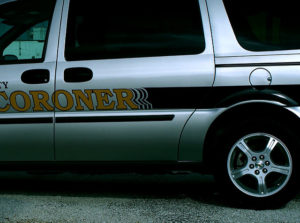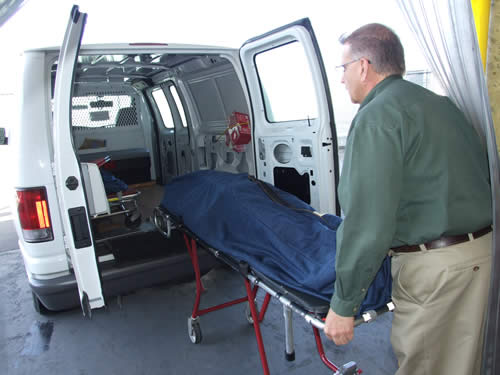If you live in Pennsylvania or New Jersey and own a car, you could start a new career transporting bodies to funeral homes or crematoriums — all it takes is a valid driver’s license.
The New York Times points out that in many states there are few, if any, rules governing the transportation of bodies, and that this under-regulation can lead to serious health and economic consequences. Critics are worried that loose regulations will negatively impact families and drivers alike.
In areas such as New York City, a driver who transports bodies must be designated by a funeral director, medical examiner or coroner. The drivers work alongside these other professionals and use specialized tools such as gurney-equipped vans (which their employers provide.) In many of these locations, drivers must be licensed, trained and thoroughly vetted before they are allowed to transport the deceased.
By contrast, states such as California and Pennsylvania don’t require drivers to have any special licenses or even permission from a funeral director or coroner to transport a body. Many drivers work on-call, and employers are not legally obligated to offer drivers any training whatsoever.
In California, a group of drivers have filed a lawsuit against their employer, alleging that they were not properly trained and had to provide their own transportation equipment, such as vans, gurneys and body bags. The also had to pay out of pocket for their business expenses and were told to be on-call 24 hours-per-day every day of the week, with no holidays or sick leave.
In addition to the economic problems that arise from under-regulation, the lack of rules compromises workplace safety. Some contagious pathogens continue living long after a person has died, and drivers can become infected or transmit infections to others if they don’t know how to protect themselves. The bodies themselves may also be at risk. Families expect their loved ones to arrive at the funeral home or crematorium safely, but if drivers aren’t well trained, they could accidentally damage the body during transport.

Credit: flickr.com
Due to the sensitive nature of after-death care, some funeral directors and drivers have been pushing for more regulation in recent years. Good drivers not only need to know how to carefully move a body without contracting disease or causing damage, they also need to be sensitive to the feelings of the person’s loved ones. It’s easy to offend a family by aggressively moving a body, and untrained drivers are more likely to commit this faux pas.
Nevertheless, professionals in the funeral industry are split are on whether additional regulation is a good idea. In an interview with the New York Times, George R. Kelder, the executive director of the New Jersey State Funeral Directors Association, argues “I am not certain that the mere transport of remains requires a license or a registration…I think that would add an expense.” Yet he also admits that basic training in the safe handling of bodies is an essential part of the job. “Just like the police and first responders, they have to be trained in personal protection,” he said.
Peter Rukin, a lawyer representing the California workers, took it one step further. “I would ultimately like to see industry-specific state regulation ensuring that workers who perform removals for county coroners’ offices and the private funeral industry receive appropriate labor and health and safety protections.”
Insofar as these types of regulations are determined on a state level, progress towards a developing nationally recognized standards is unlikely to happen any time soon.

 Body Transportation is Less Regulated Than You Might Think
Body Transportation is Less Regulated Than You Might Think





 Composting Bodies Is Now Legal in a Dozen States
Composting Bodies Is Now Legal in a Dozen States














